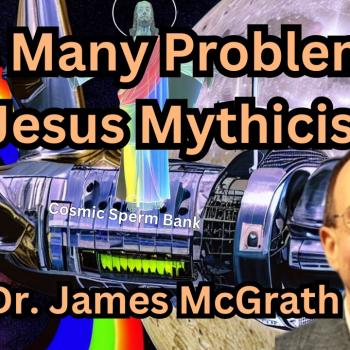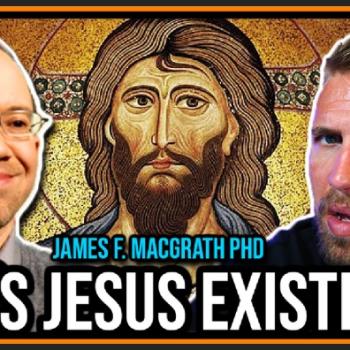Jonathan Bernier noted in a recent post “the special pleading involved in rejecting a consensus position adopted by virtually every New Testament scholar (that Jesus existed) while accepting without reflection a consensus position adopted by most but hardly all such scholars. If we are all mistaken on something so fundamental to the discipline, then how can it be assumed without investigation that the majority of us are correct on anything else?” He also writes, “There are matters upon which informed persons can disagree. Then there are matters upon which disagreement indicates that at least one interlocutor is not qualified to be part of the discussion.”
There have been a number of interesting blog posts either about mythicism or relevant to it. The entire blog “History for Atheists” is focused on this topic (interacting, for instance, with Richard Carrier). Randal Rauser included mythicism on his list of some of the worst arguments against Christianity. He also discussed the laughable claim that mythicists and young-earth creationists make that there is “no evidence” for the thing they dismiss. Hemant Mehta pointed out that skepticism can be taken too far.
Christian Chiakulas shared this image of a Facebook comment:

He commented, “These are the worst not just because of the infuriatingly smug, know-it-all attitude these armchair historians take, but because they are so painfully ignorant you wonder if they’ve ever actually done any amount of reading on the subject.”
Jerry Coyne nonetheless continues to embrace history denial while complaining about science denial. Bart Ehrman has heard enough mythicist claims – and spent enough time researching the historical figure of Jesus – that he doesn’t need to do a lot of preparation for his debate with Robert Price. I’ll be interested to watch video of that event, but it scarcely seems worth driving to, since it is essentially an event for entertainment. Academic questions aren’t settled by these kinds of debates, but through painstaking careful study of the evidence and the achievement of consensus on that basis.
Also of interest is that I came across another older book addressing mythicist claims made prior to 1916. It doesn’t adopt the kind of approach that one might expect today, but it is still worth noting that many points that modern mythicists latch onto are not new, and neither are the responses that can be given to them.
















